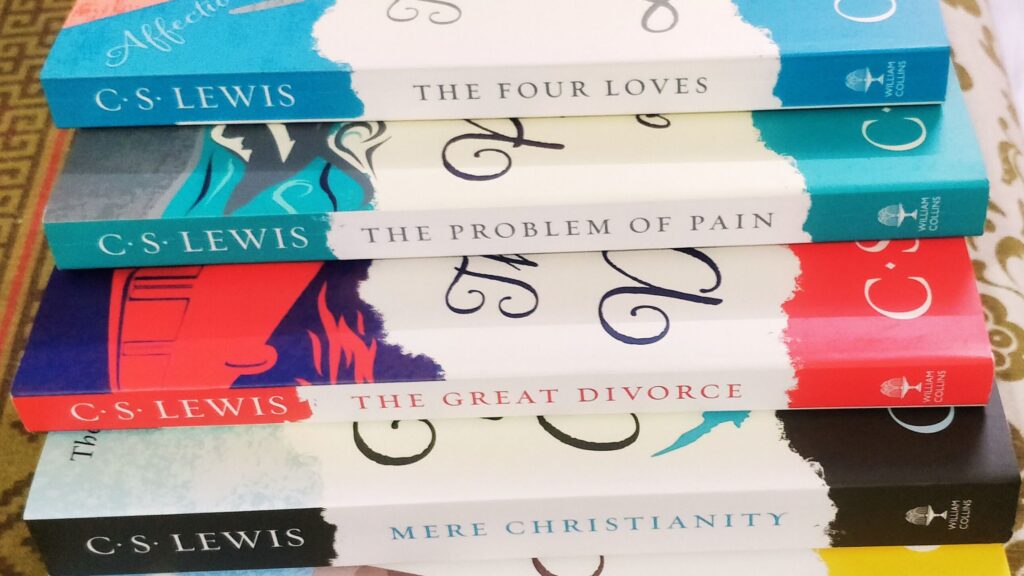Introduction
Clive Staples Lewis is one of the most celebrated authors of the 20th century alongside R.R. Tolkien. The famous writer of the Chronicles of Narnia series has had a great influence on the religious movements of the last century. His other works are a bit different where he talks about a lot of things like love, family, God, Science and philosophy.
The 7 book series consists of quality works of writing which lay a great foundation for the writer’s messages.
Miracles By Clive Staples Lewis
Do Miracles occur in the real world, or is it just a fragment of our imagination? In this book, C.S. Lewis takes on the question of a strange phenomenon that takes place on Earth. Many people have witnessed some miracles during their life. But are these events natural or beyond natural?

Major Message
The main discussion of the book follows the premise of naturalist and supernaturalist theories where, on the one hand, we have the naturalist point of view that there is only nature and nothing is beyond nature, well in that case, we have no room for miracles as laws of nature are strict and can not be manipulated.
On the other hand, we have supernaturalist theories which believe that there is an outside force apart from nature that can enter and exit nature, influencing the lives of the natural order. We term these influences as Miracles.
Case Against Naturalists
Lewis tries to dismiss the case of naturalists using his hypothesis and lay a case for some sort of supernatural persona outside of the natural world. This force does not bend the laws of nature but acts as an extra variable independent of the events and conditions of the world.
Event causation can be a simple example. Besides rational thought, Lewis focuses on the historical evidence of a miracle that led to the formation of Western civilization, and it is the story of Christ. His efforts to make sense of the whole tale truly capture the possibility of something beyond our natural sense and open room for an unknown existence.
The Great Divorce
The Great Divorce follows the account of the narrator and his journey by bus ride from a station to a divine destination. On reaching the destination, our narrator witnesses a wide variety of conversations between the spirits of heaven and ghosts of hell. These interesting conversations show the differences between good spirits and evil ghosts.
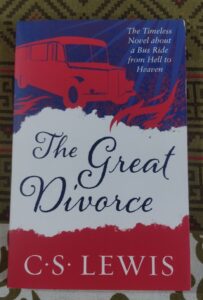
The Figure of Ghosts
The ghosts are not evil as they are trying to hurt people, nor do they have the ability to do so, but in the sense that they cannot free themselves from the evil roots of hell. Some ghosts are stuck in the past, while some are stuck with immoral virtues that they think to be above God. In one case, a lizard latched onto the shoulder of a ghost.
An angel arrived and asked the ghost’s permission to destroy it; after some brief conversation with the lizard, the ghost agreed to destroy it, and the angel did destroy it. After that event, the ghost was turned into a man while the lizard turned into a horse. And the rider rode into the hills of the land towards heaven.
Free Will
This shows the scenarios of free will and a choice made by the ghost for a better life in God. Many scenarios take place in this book; some had good endings while others did not, but overall, the book’s theme lies in the narrative that heaven and hell exist in separate states. It’s up to the ghosts whether they want to be stuck with the pride and misery of hell or devotion and love to heaven. At last, the narrator woke up and realised it was a dream.
The Problem of Pain
The Problem of Pain is a book by C.S. Lewis that aims to answer the question of human suffering in life. Why does suffering exist in a world made by God, and how does suffering shape human nature and vice versa? The book is not an excuse for human suffering, nor does it emphasise that people should suffer. Still, it gives different explanations, mythological and uses reason to explain the phenomenon of pain and suffering.
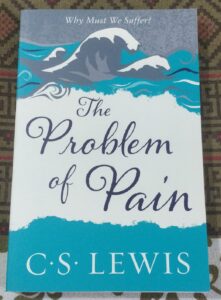
The Premise of the book
The basic premise of the book reveals human choice and free will. Suppose hypothetically, if God created everything to his will, then there will be no free will, and humans will be a slave to a will not their own. One can say that God left a possibility of suffering in the world; whether the suffering is maximum or minimal, is up to the people of the world.
Will of the world
For sure, many unfortunate events have taken innocent lives. But that’s where the idea of evil comes into the picture, where the human conscience becomes degraded and corrupt and formulates a world of its own which is nothing but a false reality. In that reality, the human conscience is the master, and the rules are made by man.
Still, the problem with those rules is that human nature tends to bend the rules, and that’s where the possibility of an evil conscience comes into practice. History is clear that it could be the case; therefore, evil forces can take over the world as well, turning the lives of innocents into living hell.
Suffering is a part of human life
Whatever the explanations in this book, ultimately, suffering is a part of human life. So what do we do about it? Indeed, we can reduce it, and we have seen that modern science does its job. However, the complete elimination of suffering is a different task, as suffering exists in the material world and our consciousness, about which we know very little.
The present
Present-day sufferings, tragedies, pain and problems of life have a net negative influence on people’s lives, but at its core, it makes us human. Whenever we hear about some mishap, most of us share grief and compassion, which is not bound by any limits. It unites us and helps us all to see this world in a more spiritual sense. It’s like we are part of one great spirit, which contains all of us.
As for the sufferer, even though he’s in pain, agony and discomfort, this condition is the defining moment of who he is and what he can achieve. We have plenty of people who are broken when some ache falls on their heads, and we should not blame them, but the route they choose to channel that pain out could be a disaster for everyone around them, making things worse for them and also others.
While some people suffer, this suffering reveals their true potential as human beings and high values like fortitude, humility, selflessness and more. It shows the impact of suffering on the person and how it moulded him to be a great person.
Final thoughts
Pain is a part of life; even if we take medicine, we only eliminate the chemicals that trigger the pain, but it’s still there. Probably all of us will suffer in this life, but that does not change the fact that it could be a life still worth living where we don’t know our true potential.
Four Loves By Clive Staples Lewis
Four Loves is another book in the series of discussions where C.S. Lewis tries to answer the relates to love from philosophical and religious points of view. As the title suggests, he speaks of four different types of love. Affection, friendship, eros and charity. These are the four different loves mentioned in this book.
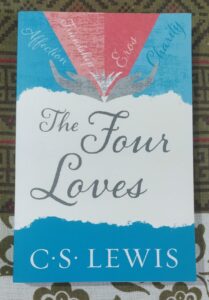
Affection
As the name suggests, affection is a particular individual’s likeness towards another. It is a type of love towards a person regardless of his behaviour or nature. Parents’ love is a never-ending affection towards their children. It is a need-love and gift-love scenario which simply means more affection the parents give love to their children as a natural gift. In other words, an individual must gift love for his peace of mind or spirit.
Friendship
Friendship is another form of love which we develop throughout our lives. Most friendships begin with a famous phrase, “You too”. It means that we tend to develop friendships with people with similar values, habits, and interests. Otherwise, we don’t call those people friends. We care for our genuine friends and, in a way, feel responsible for their actions and well-being. We try to help them, forming friendships in a gift-love realm.
Eros
The following form of love is eros; now eros can be defined in multiple ways; romance, bonding between couples or partners in a way that feels like the same entity, can be termed as eros. However, according to the book, eros can be defined as an everlasting relationship between two people who care for each other to sustain living with the worst of each other. This sort of bond forms eros more religiously. Otherwise, when it becomes the highest value, love can lead people into an abyss where they can do bad things as an excuse for love. That is not love; that is hell.
Charity
At last, the author talks about charity, but it’s not entirely the sort of charity you’ll be thinking about. It’s a bit different. It’s the sacrifices we make for one another, not knowing but with a pure heart. These sorts of charities are the reason that we can sustain the system of families all over the globe.
At last, the book’s central theme is that love becomes a demon when it tries to become God. It means that love is a gift but not the highest gift we can give a person. The highest form of love is only given to God, and by doing that, we can simultaneously gift joy to others as we see them in a similar way by which we see God, as they all are part of him.
Surprised By Joy
Surprised By Joy is the autobiography of C.S. Lewis, in which he details his journey from atheism to Christianity and the various events and factors that played a crucial role in discovering his faith.
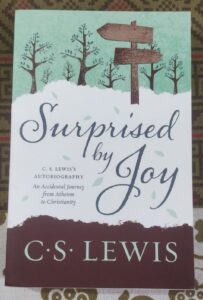
The Life of Clive Staples Lewis
His life story starts from the usual schooling and education, where he went from a casual believer of God to agnostic and then to atheist in his teen years. He had that position for quite some time. Then two prominent people came into the picture he mentioned in the book, and both greatly impacted his thoughts at that time. These encounters opened a new door in his life, and he began to make sense of the world with a fresh perspective.
The Beginning
From the very beginning, he was a great reader, and this habit of learning made a life-changing impact on him. There are also other people mentioned in the book, and even those people were essential factors in the life of Lewis.
The Book
This book is a very well-written autobiography, especially the parts where the author questions his stands and thoughts from his point of view, which he developed throughout his life. It reflects human life and how we evolve in every aspect of our lives, whether natural ageing or the refinement of our thoughts, which are further reflected in our actions.
Screwtape Letters by Clive Staples Lewis
In Screwtape Letters, C.S. Lewis turned the story’s narrative from life’s point of view to death. It’s a story that records the exchange of letters or conversations between a demon and his nephew. In these letters, the senior demon, Screwtape, instructs his nephew about his duty to tame human beings with all sorts of desires and sinful feelings inside them. They aim to make humans sin and turn them against the enemy (God).

Premises of Screwtape Letters
There are 31 letters in this book from the Screwtape to his nephew Wormwood, which explain various tricks and plays to assist Wormwood in achieving his goal. It was to turn the patient (they address their targets as the patient) against the enemy and towards their father (Satan).
Conclusion
Ultimately, Wormwood lost his patience with the enemy and failed. It was his fault or the strength of the enemy, it was not clear but he failed and his punishment was due. This book is a work of great satire, and it focuses on the ability of even small thoughts in our minds that could lead to much larger scale issues in our lives.
Whether it’s a work of evil or not, one thing is evident: we need to have more strength and courage in the face of adversity because it is the time when we are more prone to fall. Also, the demons are upset and frustrated with the enemy (God) in this book because they don’t know what his plan is.
This builds tension in them that whatever the enemy is up to, they have to reject that, but they don’t know anything about his plan, so it leads them to nowhere as they’ll work in the direction in which the enemy wants them to be.
Mere Christianity By Clive Staples Lewis
Recognized as one of the most prolific speakers in the Western theologian sphere. C.S. Lewis’s “Mere Christianity” summarises his faith and a case for Christianity and its religious aspects. It is a great theologian book, and the language is straightforward.
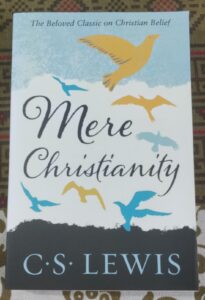
The Reasoning of Clive Staples Lewis
The case of reasoning, human nature and morality are some of the key themes discussed in this book. There is also a lot of comparison between the ideologies of different atheists and materialist thinkers. Complex questions regarding human life are discussed as well.
Initially, the book is the transcript version of the lectures or talks that were given by Lewis on the live shows to the people suffering from the war in Europe. The central theme of these lectures was to unite people and help them overcome the losses and tragedies of that time.
The Theme
The books cover topics like pride, marriage, charity, supernatural phenomena, and creation. The restorative aspect of the lecture was one of the reasons they were converted into a book. The Christian worldview approaches every moral situation in the book, and it lays a case for the ideal being in the face of adversity as a Christian.
“If we find ourselves with a desire that nothing in this world makes us happy, the most probable explanation is that we were never made for this world”.
Quote by Clive Staples Lewis

